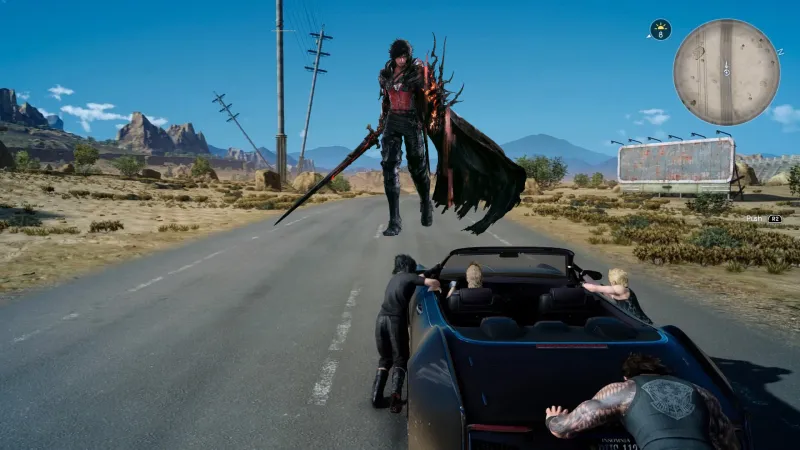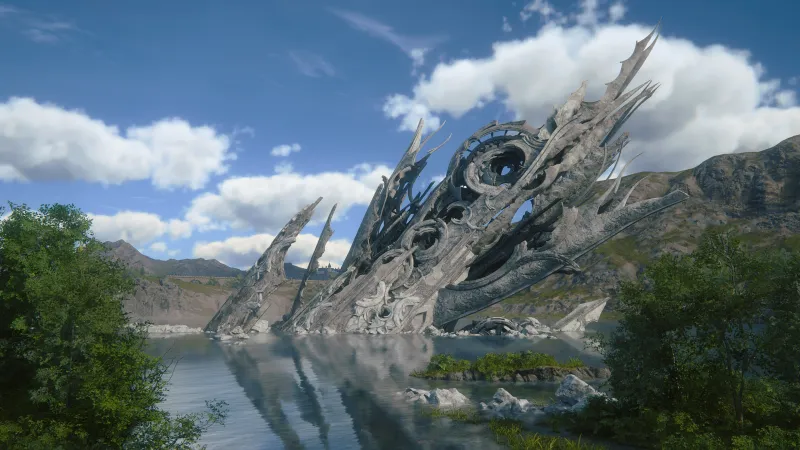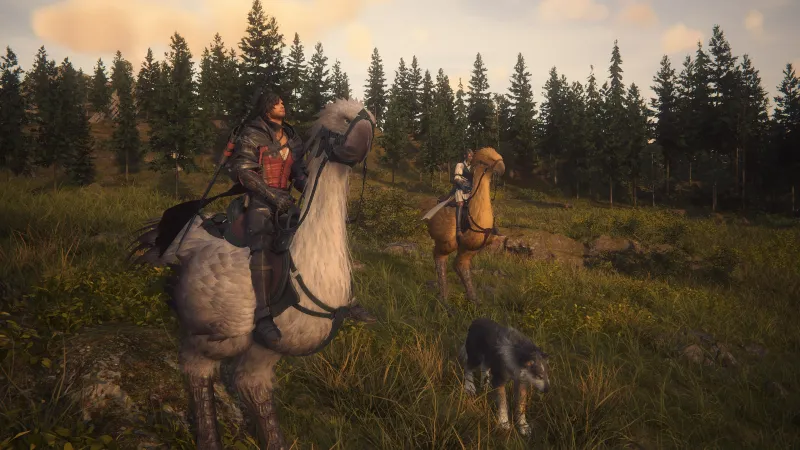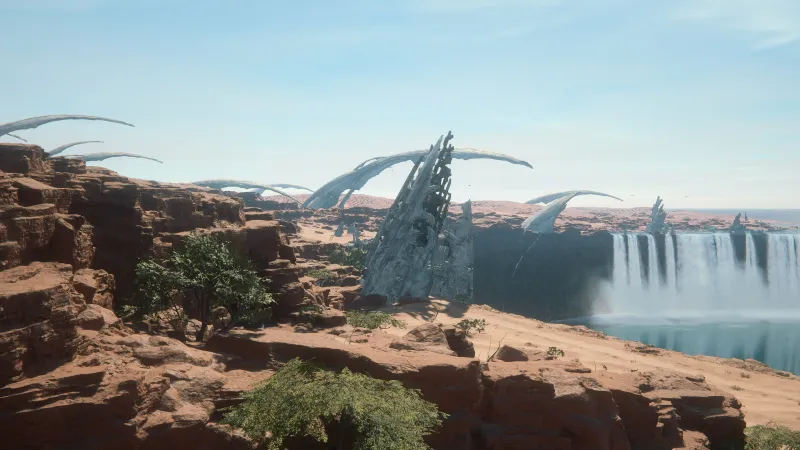Final Fantasy 15 Criticism Is A Reason Final Fantasy 16 Isn’t An Open World Game

After playing several hours of Final Fantasy XVI in Square Enix’s Tokyo, Japan, offices for this month’s cover story, I spend about 20 minutes in one of the game’s various open field areas. FFXVI isn’t an open world game, but it features several large areas where players, as Clive, are free to explore the location, fight monsters, pick up side quests, find treasure, and more.
I spend about 20 minutes checking out every nook and cranny of one of the earlier open field locations in the game. After that, I check my map to see how much I had covered in the area I was permitted to explore – it was about an eighth, which is to say these zones are massive. But much of the game occurs in focused, dungeon-esque missions where players make their way through more linear areas, defeating monsters and bosses along the way.

After playing through this, I asked producer Naoki Yoshida why the team opted for open fields rather than a full open world game, especially in a time when the style is more popular than ever. One of the more surprising reasons is 2016’s Final Fantasy XV.
“If we look back at Final Fantasy XV, a lot of the criticism about that game was kind of centered on the story,” Yoshida says before listing out some of the criticism. “‘Some of the storytelling elements weren’t as good as they could have been,’ or, ‘Towards the end, the story kind of loses its focus,’ or, ‘We have this story that needs to be told in DLC’ and then that DLC gets canceled so it can’t be told.
“So there are lots of problems there with the storytelling that we find. And for Final Fantasy XVI, we wanted to make sure that again, our focus [is] on storytelling […] so that we can cover those gaps that [FFXV] had.”

Yoshida says he and the team, as players, play many open world games, but telling a succinct and focused story in that format would have been tough because FFXVI takes place across an entire continent.
“For example, if you create this open world of the 23 wards of Tokyo, then basically, your story has to take place in the 23 wards of Tokyo, and it can’t take place outside of that,” Yoshida says. “You can create more areas outside of that, but then that takes a lot of resources, and the more that you create, then the bigger chance that you have of that giant area that you created becoming empty, and that’s the one thing that players hate the most: [a] huge open world but there’s nothing to do in it.”
Creative Business Unit III wanted to avoid this very dilemma.
“To begin with, Final Fantasy XVI and the Final Fantasy series in general, have always been about traveling to a lot of different exotic places, meeting a lot of different people and cultures, and ultimately saving the world,” Yoshida continues. “And so if we’re restricted by a smaller open world area, we can’t do that. And because we wanted to do that, that’s why we ended up going in the direction that we did. We could have created an entire open world that would fit, but then by doing that, development time takes just that much more time.”

Instead, Yoshida says the team looked at the story and the script to see where the main narrative would take players. The team then decided this journey didn’t fit an open world setting.
"And rather than trying to take that [journey] and force it into an open world setting because open world games happen to be popular, we decided that, 'No, we want to tell the story the way we want to tell it and make it a global scale type of thing and this is probably going to work better,'" Yoshida tells me. "Once the core development team had seen the story and where it’s going to take us, then there wasn’t really a discussion about [making it open world].”
For more, be sure to check out Game Informer’s exclusive FFXVI coverage hub by clicking the banner below.
source https://www.gameinformer.com/exclusive-feature/2023/05/24/final-fantasy-15-criticism-is-a-reason-final-fantasy-16-isnt-an-open
